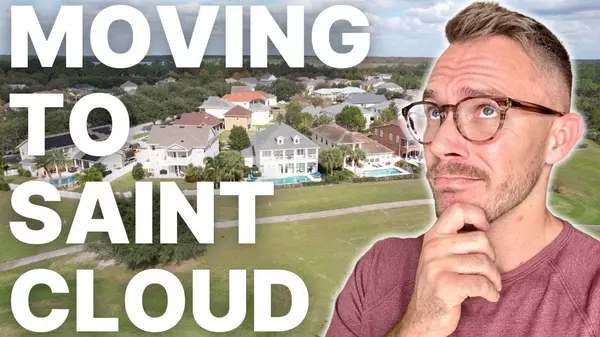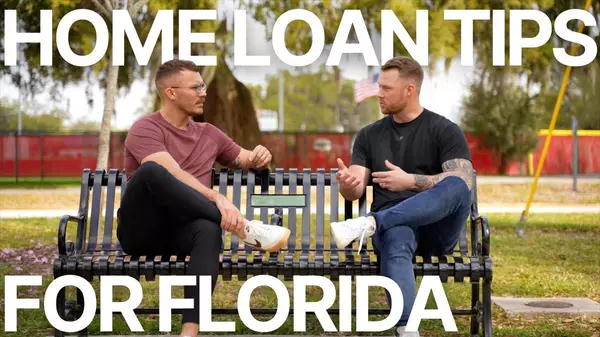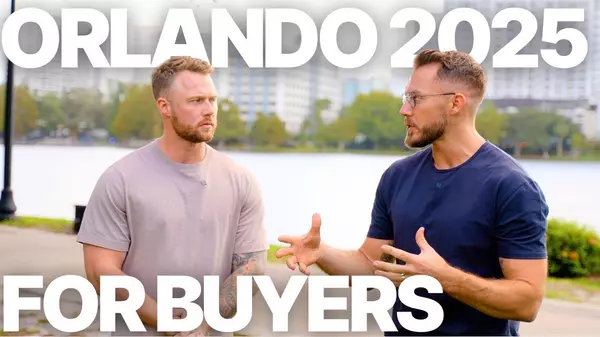Moving to Florida? 3 Financial Steps to Prepare for Your Home Purchase
Moving to Florida? 3 Critical Steps to Get Ready for Your Home Purchase
Are you planning to move to Florida within the next year? Buying a home in a new state comes with unique challenges, and preparing ahead of time can make all the difference.
To help you get ready, I sat down with Jory Blackmer, a top Florida lender, to discuss the three financial areas you need to focus on right now to set yourself up for success. Let’s dive in!
1. Credit: Know Your Score & Improve It If Needed
📊 Your credit score plays a major role in your mortgage rate and loan approval. But many buyers don’t check their real mortgage score before applying!
💡 Where Should You Check Your Credit?
✅ Best Option: MyFICO.com ($30/month for accurate mortgage scores)
✅ Avoid: Credit Karma (gives a ballpark estimate but can be 30-40 points off!)
Why It Matters:
- A small increase in your credit score can significantly lower your interest rate.
- Knowing your real score prevents surprises when applying for a loan.
📌 Pro Tip: If your score is lower than expected, start working on paying down debts, avoiding new credit inquiries, and making on-time payments at least 6 months before buying.
2. Employment: Secure Your Job Before Moving
One of the biggest mistakes buyers make when moving to Florida is not planning ahead for employment.
How Does Your Job Affect Your Mortgage Approval?
✅ If You’re Transferring Within Your Company:
- You need a transfer letter from your employer confirming your new position and salary.
✅ If You’re Getting a New Job in Florida:
- You need a job offer letter stating your start date and salary.
- If you start the job before closing, you’ll need to provide a pay stub before final loan approval.
🚨 What About Self-Employed or Remote Workers?
If you’re self-employed or work remotely, lenders will evaluate:
- Whether your business is location-based or can function remotely.
- Your last two years of tax returns to verify stable income.
📌 Pro Tip: If you’re starting a new remote job, ensure your offer letter confirms that you can work from anywhereto avoid mortgage approval issues.
3. Assets: Understand Your Down Payment & Closing Costs
🏡 You’ll need funds for:
✔️ Down payment (as low as 3-3.5% for FHA, 5% for conventional)
✔️ Closing costs (typically 2-5% of the home price)
💡 Ways to Cover These Costs:
✅ Personal savings (checking, 401K, investments)
✅ Gifts from family – About 50% of buyers receive financial help from family members.
✅ Seller concessions – Some sellers offer closing cost credits as part of the deal.
📌 Pro Tip: Start saving early and keep funds in an easily accessible account—moving large sums of money right before closing can trigger red flags for lenders!
How to Get a Lower Mortgage Rate
💰 Let’s be honest—interest rates are higher than they were a few years ago. So how can you get the best rate possible?
1. Consider a Temporary Interest Rate Buydown
A temporary buydown allows you to lower your rate for the first 1-3 years using seller-paid credits.
📊 Example: 2-1 Buydown
- Year 1: 2% lower rate
- Year 2: 1% lower rate
- Year 3: Back to normal rate
🔹 Who Pays for It? The seller provides concessions to cover the cost.
📌 Pro Tip: If you plan to refinance in the next few years, a buydown can help you save big in the short term!
Florida Home Insurance: What You Need to Know
🏠 Insurance costs in Florida have skyrocketed—from $1,200/year just a few years ago to an average of $4,500/year today.
What Affects Your Insurance Rates?
✅ Roof age: Most insurers won’t cover homes with roofs older than 5 years (even on 30-year roofs!).
✅ Flood zones: Homes in high-risk flood areas require additional insurance.
✅ Inspection results: A home’s condition directly impacts premiums.
📌 Pro Tip: Get an insurance quote immediately after your home inspection so there are no surprises before closing.
Final Checklist: What You Should Be Doing Right Now
📌 If You’re Moving to Florida in the Next 6-12 Months, Do This:
✅ Step 1: Track Your Credit – Check your score on MyFICO.com and work on improvements.
✅ Step 2: Secure Your Job – Make sure you have a transfer letter or job offer letter.
✅ Step 3: Organize Your Assets – Save for your down payment and closing costs.
✅ Step 4: Work With a Local Lender – Florida’s market is unique, so having a local expert makes all the difference.
🚀 Bonus Tip: Start talking to a lender NOW to get pre-approved and build a plan that fits your timeline.
Categories
Recent Posts










GET MORE INFORMATION


